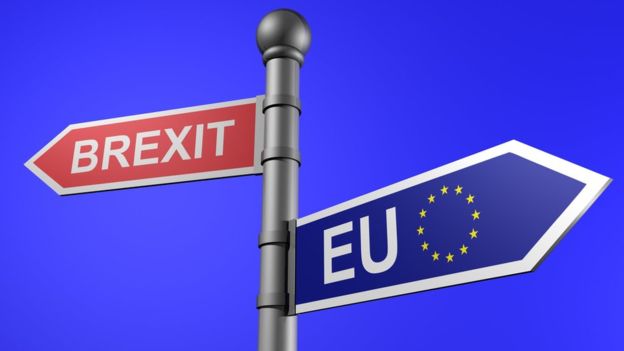|
The UK Prime Minister has indicated that Britain could opt for no deal at the end of its exit negotiations with the EU on the basis that “no deal is better than a bad deal”. In such circumstances, the UK would have to fall back on WTO rules, which would involve tariffs. It would also lose free market access to countries with which the EU currently has trade deals. WTO rules require a member state to apply a common set of tariffs to all countries with which it has no trade agreements. In this regard, the EU applies a range of common external tariffs on imports from such countries, most notably in relation to food products. The EU would have to levy these tariffs on imports from the UK in the absence of some form of trade deal post Brexit.
Meanwhile, if the UK decides to impose tariffs on imports, it will raise input costs and consumer prices. However, if it decides on very low or no tariffs, it will weaken its hand in negotiating new trade deals with the EU and other countries. It also seems that the UK may well leave the EU Customs Union as it wants to negotiate its own trade deals with third countries. EU trade with the UK would be clearly impacted by this, with a lot of increased costs, delays and paperwork. There is likely to be a requirement for customs checks and clearance, as well as compliance with regulations on rules of origin, production standards, etc. Such non-tariff barriers are seen as more damaging to trade than the tariffs themselves. Meanwhile, goods going from one part of the EU to the other, that move through the UK, will require TIR (Transport Internationaux Routiers) carnet customs documentation to avoid import duties and taxes—the goods will also have to be bonded and in sealed lorries. Irish businesses would be well advised to start preparing for the possibility of a ‘hard’ Brexit, given that free trade between the UK and EU could end in 2019. Those importing from the UK could be faced with increased administrative costs, tariffs and customs checks. Meanwhile, Irish exporters to the UK, most notably in the food sector, could also be hit with significant tariffs and customs checks, as well as facing increased competition in the UK market. The ESRI has forecast that a ‘hard’ Brexit which sees a fall back on WTO rules, would result in a big decline in trade with the UK, and depress Irish growth and employment. Significant declines in UK GDP are also likely in the event of a ‘hard’ Brexit with WTO rules. A further marked fall in sterling is likely in such circumstances. However, we will have to await the outcome of the Brexit negotiations, probably in late 2018, to see whether the UK manages to retain relatively free access to EU markets or, instead, has to fall back on WTO rules.
0 Comments
Your comment will be posted after it is approved.
Leave a Reply. |
Archives
June 2023
Categories
All
|
-

Business to Business
Providing Step by Step Guidance
Get in touch for your free consulation today
Contact Us -

-

Over 30 Years Experience
Insight into all aspects and types of business
Get in touch for your free consulation today
Contact Us
We create custom business to business strategies. |
SITE MAP |
CONTACT DETAILS
|
|
©
2024 Ryan & Crowley Chartered Accountants


 RSS Feed
RSS Feed

